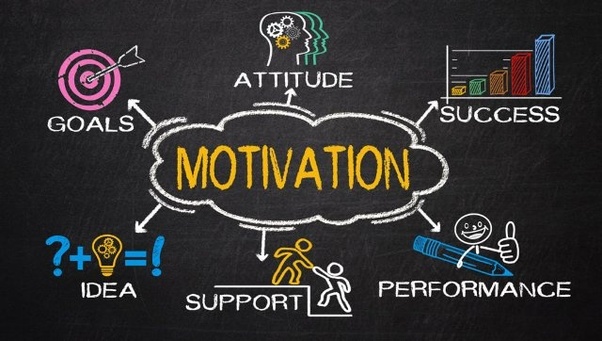9.6 Motivation

Motivation refers to an internally generated drive to achieve a goal or follow a particular course of action. Highly motivated employees focus their efforts on achieving specific goals. It’s the manager’s job, therefore, to motivate employees—to get them to try to do the best job they can. Motivated employees call in sick less frequently, are more productive, and are less likely to convey bad attitudes to customers and coworkers. They also tend to stay in their jobs longer, reducing turnover and the cost of hiring and training employees. But what motivates employees to do well? How does a manager encourage employees to show up for work each day and do a good job? Paying them helps, but many other factors influence a person’s desire (or lack of it) to excel in the workplace.
It is a general presumption that the motivation of an employee plays a pivotal role in amplifying his/her productivity and performance. To attain maximum achievement in the organizations, it is inevitable that the employees must perform optimally. It is a unanimous consensus that workers will accomplish their tasks better when they are highly motivated. The recognition of their achievements may be translated into intrinsic rewards; and through these rewards, the employees may motivate and perform up to their maximum capacity.
Knowledge about human nature is very important for understanding motivation but human nature is not as simple to understand because every human is different from others. Organizations are using different human resource tactics and practices to motivate their employees. Reward management system and participation of employees in decision-making are frequently used practices by organizations to accomplish their objectives.
The Reward Management System
The reward management system includes intrinsic rewards and extrinsic rewards like salary, bonuses, recognition, praise, flexible working hours, and social rights. With the help of a reward management system, enterprises can appeal, retain, and motivate employees to attain high performance of the employee.
As you train your employees, coach them, provide feedback, and evaluate their performance, remember that, at their core, these activities can motivate or deflate your sales personnel. A driven, motivated, imaginative sales team will do wonders. However, a defeated, uninspired team will not get you where you want to be. They may destroy your team’s morale or cause members to leave altogether. Motivating others is a critical skill for anyone managing a team.
Listen to this conversation to explore ways to become a more motivational leader.
“11 Motivating Employees” from Fundamentals of Business: Canadian Edition by Pamplin College of Business and Virgina Tech Libraries is licensed under a Creative Commons Attribution-NonCommercial-ShareAlike 4.0 International License, except where otherwise noted.
Intrinsic Rewards and Employee’s Performance With the Mediating Mechanism of Employee’s Motivation by Faiza Manzoor, Longbao Wei and Muhammad Asif is licensed under a Creative Commons Attribution License.
“Motivation and Compensating Salespeople ” from PRDV217 Introduction to Sales by Saylor Academy is licensed under a Creative Commons Attribution 3.0 License.

